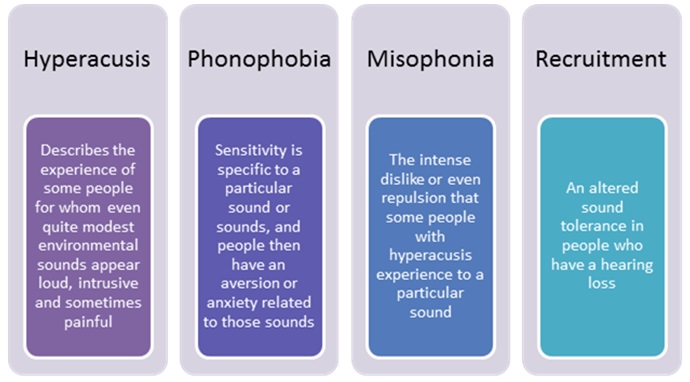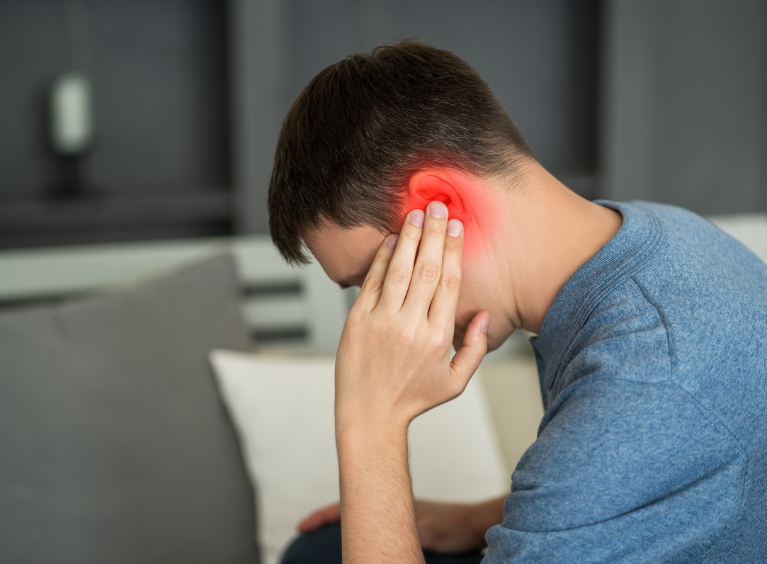What is tinnitus?
Tinnitus is the word used to describe the perception of noises in the head and/or ear that have no external source. The word tinnitus derives from the Latin word tinnire which means to ring. Those living with the condition may experience a ringing, buzzing, hissing, whistling or other noises. The sensation can be constant or intermittent and it can vary in volume. Tinnitus is very common and reported in all age groups, even young children. Latest research suggests 1 in 7 people have tinnitus and over 7 million adults in the UK have tinnitus. (Source – Royal Nation al Institute for the Deaf 2025).
While we may not know the exact causes of tinnitus, we know that it is not an illness and that it may be linked to a number of factors including hearing loss, noise exposure, medication, or traumatic life experiences.
There's not a quick fix for tinnitus, often it will gradually improve over time. Depending on the degree of your tinnitus and how bothersome it may be there are a number of care options available to you.
- self-help tips available from Tinnitus UK, RNID and IDA Institute – see below
- the Tinnitus Support service at Warwick Hospital
Please click here for information about the Warwick Tinnitus Support Group.
Tinnitus UK is charity that helps support people with tinnitus and has a website for information, help and support click here. If you would like to speak to someone there is a tinnitus help line: 0800 018 0527.
The Royal National Institute for the Deaf (RNID) provide information and have a free Tinnitus Guide: Tinnitus - RNID
The Tinnitus Support Clinic is currently able to see patients through a mixture of remote and face to face appointments. The format of your pathway will be specifically designed for you and will be agreed by you and the Audiologist. We accept referrals for patients who have been seen by the Ear Nose and Throat Department and have been referred to us for more advice about their tinnitus. Typically, most patients are seen in the clinic up to five times.
- The initial appointment will last for about 90 minutes and aims to gain a better understanding of your tinnitus and how it affects you
- We will provide personalised counselling and support you to choose management options and jointly agree on a management plan
People have a key role in managing their own health, choosing appropriate management options and managing their long-term conditions. Self-management is a term used to include all the actions taken by people to recognise, treat and manage their own health. They may do this independently or in partnership with the healthcare system.
Here are some of the of the management options available:
- Information and education - Understanding tinnitus plays an important part in learning how to manage the condition more effectively. Working with an Audiologist you learn more about your tinnitus and find ways of coping with it.
- Tinnitus UK have a new online resource for people with tinnitus. It is designed so it can be used on mobile phones, tablets or computers, includes an initial taster session followed by seven learning modules covering the fundamentals of tinnitus, hearing and tinnitus, benefits of using sound, the link between tinnitus and relaxation, sleep and tinnitus, the benefits of talking about it and living your life with tinnitus. Each module takes just 10-15 minutes to complete and includes a range of interactive exercises, video clips and self-tests all designed to keep you engaged in your learning.
- Correcting hearing loss - People often report hearing their tinnitus more in a quiet environment. If you have a hearing loss then hearing aids will help you to pick up more of the background sounds around you and you may not notice the tinnitus as much. By listening to external sounds, you may hear your tinnitus less.
- Sound therapy or Sound Enrichment – As tinnitus is often most noticeable in quiet environments, the aim of sound therapy is to fill any silence with neutral sounds to distract you from the sound of tinnitus. This may involve simple measures such as opening a window to hear noises coming from outside, leaving a radio or television on, listening to music or other sounds through an App or device. Personal sound generators can be worn in your ear and produce a continuous "shushing" sound at a level that's comfortable and soothing.
- Self-help - Some people find self-help techniques useful for managing their tinnitus. These techniques include:
- Relaxation and meditation – stress can make your tinnitus worse, so relaxation techniques such as deep breathing and relaxation exercises may help.
- Sleep hygiene – if tinnitus is affecting your sleep, changes you can make such as reducing caffeine and alcohol intake, avoiding stimulating activities and exercise before bed may help.
- Activity- keeping your mind occupied with an absorbing task can help.
- Exercise – Exercise helps us achieve a higher level of well-being and in most cases this helps people manage their tinnitus more easily, as well as helping them to sleep better.
- Apps - There are many tinnitus support Apps now available, which play relief sounds and/or assist with relaxation techniques. Click here for information on the ReSound Tinnitus Relief App.
- Mutual support - It can often be very helpful to talk to someone who understands how you are feeling, who can reassure you about anxieties you may have and answer your questions. This can be online, at information days or through a support group. Click here for more details of the Warwick Tinnitus Support Group. Tinnitus UK offer online support groups.
Tinnitus UK have leaflets that may be of help to you. Click here for more information.
What is hyperacusis?
Hyperacusis is an increased sensitivity to many everyday sounds e.g. conversation, traffic, household appliances. Up to 40% of people with tinnitus describe a degree of hyperacusis. Hyperacusis can exist on its own or alongside a number of other symptoms such as in Meniere’s and Chronic Fatigue syndrome.
Hyperacusis affects people in different ways. For some people, it is a minor annoyance but other people find it really difficult to live with. Some people with Hyperacusis withdraw from social and professional activities and become isolated; this can make the problem worse as they become fearful and anxious. Therapy often involves addressing these fears and anxieties.
Hyperacusis is used to refer to all types of altered sound tolerance. It describes the experience of some people for whom even quite modest environmental sounds appear loud, intrusive and sometimes painful.
There are some additional words used to describe types of hearing sensitivity.
Phonophobia is a fear or aversion to certain sounds. This could be hand driers in public toilets, fireworks or the scraping of cutlery on a plate. It varies from person to person.
Misophonia describes an intense dislike or even repulsion to a particular sound, often one generated by other people, such as chewing.
Recruitment is a specific form of altered sound tolerance in people who have a hearing loss.

The Hyperacusis Clinic is currently able to see patients through a mixture of remote and face to face appointments. The format of your pathway will be specifically designed for the patient and is agreed by the patient and the Audiologist. We accept referrals for patients who have been seen by the Ear Nose and Throat Department and have been referred to us for more advice about their tinnitus. Typically, most patients are seen in the clinic up to five times.
- Initially we phone each patient to gain a better understanding of their hyperacusis and how it is affecting them
- Each patient then completes our 3 part informational counselling course which we send you links to
- A further appointment is arranged (virtually – by phone or online platform or face to face) to provide personalised counselling and support from this course and to jointly agree on a treatment plan
- Further appointment focus on delivering the treatment plan and following up on each patient’s progress
We can provide a sound desensitisation programme which includes:
- Informational counselling and emotional adjustment
- Sound therapy
- Challenging perceptions about sounds & ear protection
- Exposure training
- Relaxation
- Signposting to online peer support
- Referrals to psychological support including Cognitive Behavioural Therapy or signposting for Improving Access to Psychological Therapies (IAPT) for further support with the effects on your mental health
There is not a national charity for hyperacusis but there is an international forum call the Hyperacusis Network you may wish to also review.


